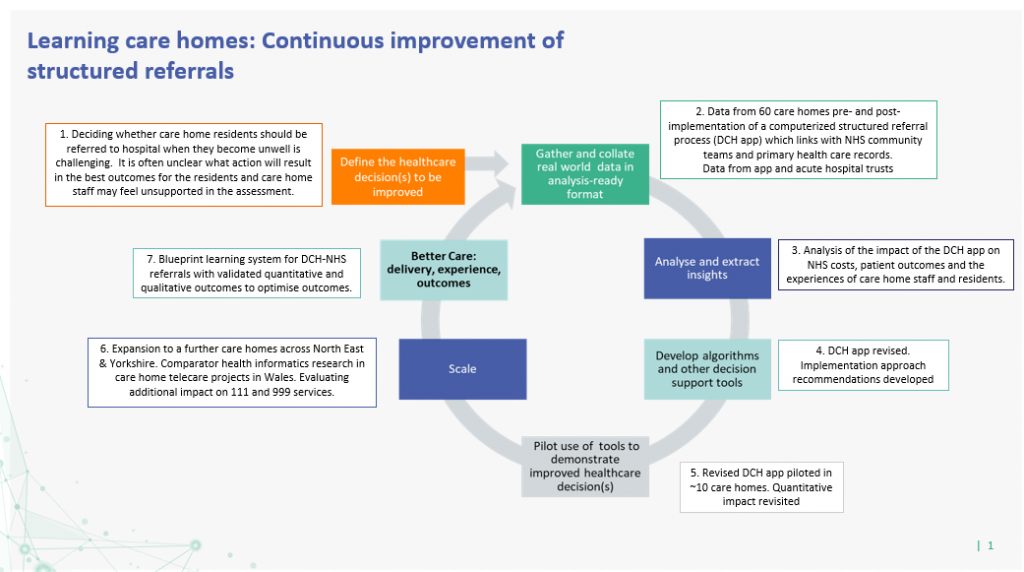Learning Care Homes: Continuous improvement of structured referrals
This project aimed to evaluate and improve a Digital Care Homes app now called the Health Call app to support decision-making by care home and community staff when a care home resident becomes unwell. The process allows the community NHS team to make an action plan and hopes to reduce unnecessary hospital attendances, allowing residents to be cared for in their own environment where appropriate.
Watch this video to find out how the Health Call app is helping to improve patients’ quality of life.
The Challenge
Around 430,000 older people in England live in care homes. Many have frailty, dementia, poor mobility and are near the end of life, which adds complexity to managing their preferences. When residents become more unwell, care staff often feel they would be better looked after in hospital. However, hospital admissions carry big risks including infection, increased confusion, poor mobility, and falls. Furthermore, residents often prefer to be treated where they live. Determining the most appropriate management for individual patients is a significant challenge.
The Solution
The team aimed to enhance development of a process to support care home staff when a resident becomes unwell. They began with evaluating the Digital Care Homes (DCH) app, which was already set up in 60 care homes.
Renamed the Health Call app, it allows staff to provide a structured referral (SBAR, Situation, Background, Assessment, Recommendation) and resident observations, and then transmits the data instantly to the community NHS team who also see the resident’s GP record, allowing them to make an informed action plan.
The team evaluated this referral process by analysing what happens to residents when the referral system is used, and specifically whether it leads to fewer hospital admissions. Linked data from routine care was analysed to identify how care homes use the app and to quantify any changes in service use, clinical outcomes and costs to the NHS. They also tested how residents, their families, care home staff and the community NHS team feel about this new referral process and how it could be improved as a continuous ‘learning loop’. The findings will allow the process to be refined and rolled out on a larger national scale.
The Impact and Outcomes
By implementing the app in a wider ‘learning systems’ framework, the project aims to improve structured referrals, supporting care home and community staff in making decisions and optimising the management of individual care home residents.
Avoiding unnecessary referrals of care home residents to urgent care services could reduce A&E attendances and hospital admissions by 25%, based on pilot data, and allow more appropriate care to be delivered to residents in the care home, improving patient satisfaction and outcomes.
Better Care Loop

Project Team
Graham King, Chief Information Officer, Newcastle Hospitals
Suzanne Mason, Professor of Emergency Medicine, University of Sheffield and Barnsley Hospitals NHS Foundation Trust



